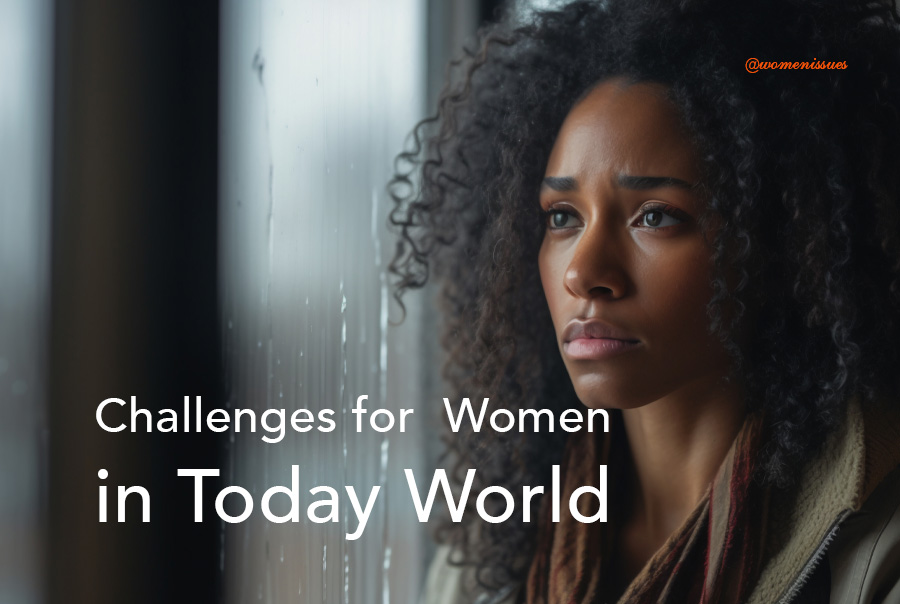Modern women face a myriad of challenges in today’s world, stemming from societal norms, cultural expectations, economic disparities, and systemic inequalities. While progress has been made towards gender equality, women continue to confront various obstacles that affect their personal and professional lives. Here are some of the challenges that modern women encounter:
- Gender Discrimination: Despite advancements in gender equality, discrimination against women persists in many areas of society. Women may face bias and prejudice in the workplace, education, healthcare, and other spheres of life. Discrimination can manifest in various forms, including unequal pay, limited career advancement opportunities, and gender-based violence.
- Work-Life Balance: Balancing career aspirations with familial responsibilities remains a significant challenge for many women. The pressure to excel in the workplace while fulfilling caregiving duties at home can lead to stress, burnout, and feelings of guilt. Women often juggle multiple roles, including being caregivers, breadwinners, and homemakers, which can take a toll on their physical and mental well-being.
- Gender Pay Gap: Women continue to earn less than their male counterparts for performing the same work or work of equal value. The gender pay gap persists across industries and occupations, reflecting underlying systemic inequalities in the labor market. Economic disparities contribute to financial insecurity and limit women’s ability to achieve financial independence and long-term economic stability.
- Lack of Representation: Women are underrepresented in positions of leadership and decision-making roles across various sectors, including politics, business, academia, and media. The lack of representation hinders women’s voices from being heard and their perspectives from being adequately represented in shaping policies and driving change.
- Access to Education and Healthcare: In many parts of the world, women still face barriers to accessing quality education and healthcare services. Factors such as poverty, cultural norms, and gender-based violence can impede women’s ability to pursue education and healthcare, limiting their opportunities for personal growth and development.
- Gender-Based Violence: Gender-based violence, including domestic violence, sexual harassment, and human trafficking, remains a pervasive issue affecting women worldwide. Such violence can have devastating physical, emotional, and psychological consequences, perpetuating cycles of abuse and trauma.
- Societal Expectations and Stereotypes: Societal expectations and gender stereotypes often dictate how women should behave, dress, and pursue their aspirations. These norms can constrain women’s freedom of expression, autonomy, and self-determination, leading to feelings of pressure, inadequacy, and self-doubt.
- Reproductive Rights and Health: Women’s reproductive rights and access to reproductive healthcare are still contested in many parts of the world. Restrictions on abortion, lack of access to contraception, and inadequate maternal healthcare services can compromise women’s reproductive health and autonomy.
- Intersectionality: Women’s experiences are shaped by intersecting factors such as race, ethnicity, socioeconomic status, sexual orientation, and disability. Intersectional discrimination exacerbates inequalities faced by marginalized women, compounding the challenges they encounter in navigating society.
- Mental Health Stigma: Mental health issues, such as depression, anxiety, and trauma, disproportionately affect women. However, stigma surrounding mental illness often prevents women from seeking help and support, exacerbating their mental health challenges.
Addressing the challenges that modern women face requires comprehensive efforts to dismantle systemic barriers, promote gender equality, and create an inclusive society where all women can thrive. This involves advocating for policy reforms, challenging societal norms and stereotypes, fostering supportive environments, and amplifying women’s voices and leadership.


No Comment